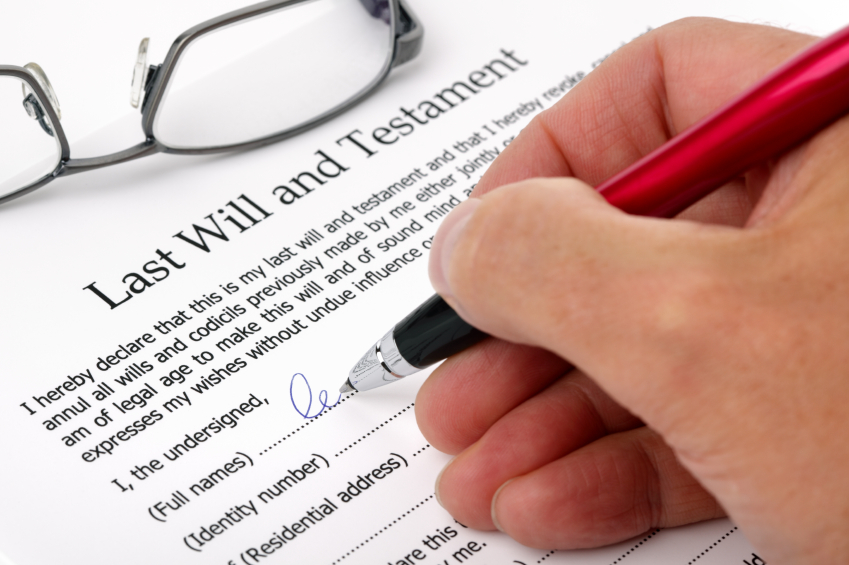
Laith Khatib, who regularly contributes to The Law Gazette, specialises in Contested Wills, Trusts and Estates. Recently, he was asked by the publication to contribute his advice on settling estate debts. The following is a summary of his article:
Settling Estate Debt
An executor is the person in charge of administering the estate of a deceased person, and one of their key responsibilities is to ensure that all debts and liabilities of the deceased and their estate are, where possible, paid.
Unfortunately, this is not always a simple task. In some cases, the estate may not be able to settle all of its debts and liabilities in full, and in others unknown creditors may be involved.
To avoid encountering problems when discharging debts and responsibilities, executors should take the following steps:
Be fully-aware of the executor’s duties
Any executor who enters into a contract on behalf of an estate is contractually liable to meet its terms. When this contract involves settling a debt, the cost is recoverable from the assets of the estate. However, if the estate’s value falls short, the executor is then personally liable. More...

Howells Solicitors were delighted to sponsor The Strategy Prize category at the Wales Quality and Innovation Awards, which celebrates Welsh companies and organisations achieving excellence in their business practices.
The event was hosted by BBC Wales’ Lucy Owen at the Vale Resort, and was attended by many leading business figures representing the cream of Welsh industry.
North Wales Shared Services Partnership (NWSSP) Primary Care Services were the winners of The
Strategy Prize, with the judging panel recognising the organisations’ application of the European Foundation for Quality Management (EFQM) Excellence Model whilst merging services and re-structuring within the NWSSP accommodation strategy.More...

There are a lot of questions that pop up when buying a house with one of the most common ones being whether or not you need to have a will in place to make the purchase. While the short answer is no, a will is not legally required, it can make a lot of sense to put one in place.
Why create a will?
A will is a legal document that helps to sort out your affairs and settle your estate in the case of your death. This can be very helpful if there are several possible beneficiaries, as it ensures that your property and belongings are passed on to the individual(s) of your choice.
This can help to minimise tension between beneficiaries by creating a smooth and easy process to follow when distributing your estate. Furthermore, it allows you to ensure that any minor children are cared for financially until they are of legal age to take control of their inheritance.
Will I own my house if I die?
If you have a mortgage then it is highly recommended that you take out life insurance. This means that even if you only have a small amount of equity in your property, with the mortgage covering the rest, the house will be paid off if you die. Having life insurance can drastically reduce the stress and worry that your partner or dependants will face and will ensure that they can keep a roof over their heads. More...

The approach of the 2015 General Election has brought with it a vast array of pomp, policies and promises intended to secure the votes of the equally diverse factions of the UK public.
But before campaigning began in earnest, a plan was unveiled by George Osborne in March’s budget which promised first-time buyers up to £3000 in Government top-ups. For every £200 aspiring homeowners save, Osborne said, the Government will boost the amount by an extra £50, with a maximum pay out of £3000 for those who save £12,000.
On the surface the proposition certainly seems attractive, but what about the small print? We take a look at the pros and cons of Osborne’s Home Buyers’ ISA to help first time buyers make up their mind come election day.
The Home Buyer’s ISA – The Pros
Even for those in a steady job who can afford monthly mortgage payments, saving up thousands of pounds for a deposit can be impossible. In fact, according to Stephen Noakes of Lloyds Banking Group, saving for a deposit is a ‘key barrier when trying to buy a first home’. Osborne’s ISA will reward positive savings behaviour and make a real difference in helping people get a foot on the property ladder. More...

With the General Election looming, office chat can often take a decidedly more political route than usual. However, whilst there’s nothing wrong with a good natured airing of opinion, there are instances when demonstrations of political allegiances are best left for outside of office hours.
Is it OK for an employee to display their party colours by wearing a politically endorsed t-shirt or badge to work? And what about displaying a party banner at their workstation? Can an employer prohibit these types of activities? Our Head of Employment Law at Howells Solicitors explains the dos and don’ts.
Politics in the Workplace
An employer has the right to enforce a dress code that it feels appropriate in the work place, and this means they can prohibit the use of items of clothing that support political parties. These guidelines should be set out in the company’s dress code or even in a policy on political activities in the work place.
Generally employers may feel the need to enforce a policy that prohibits politically endorsed items from being worn in the work place, particularly by members of staff who are ‘public-facing’. This will avoid creating an impression that the company is endorsing a particular political view. More...
